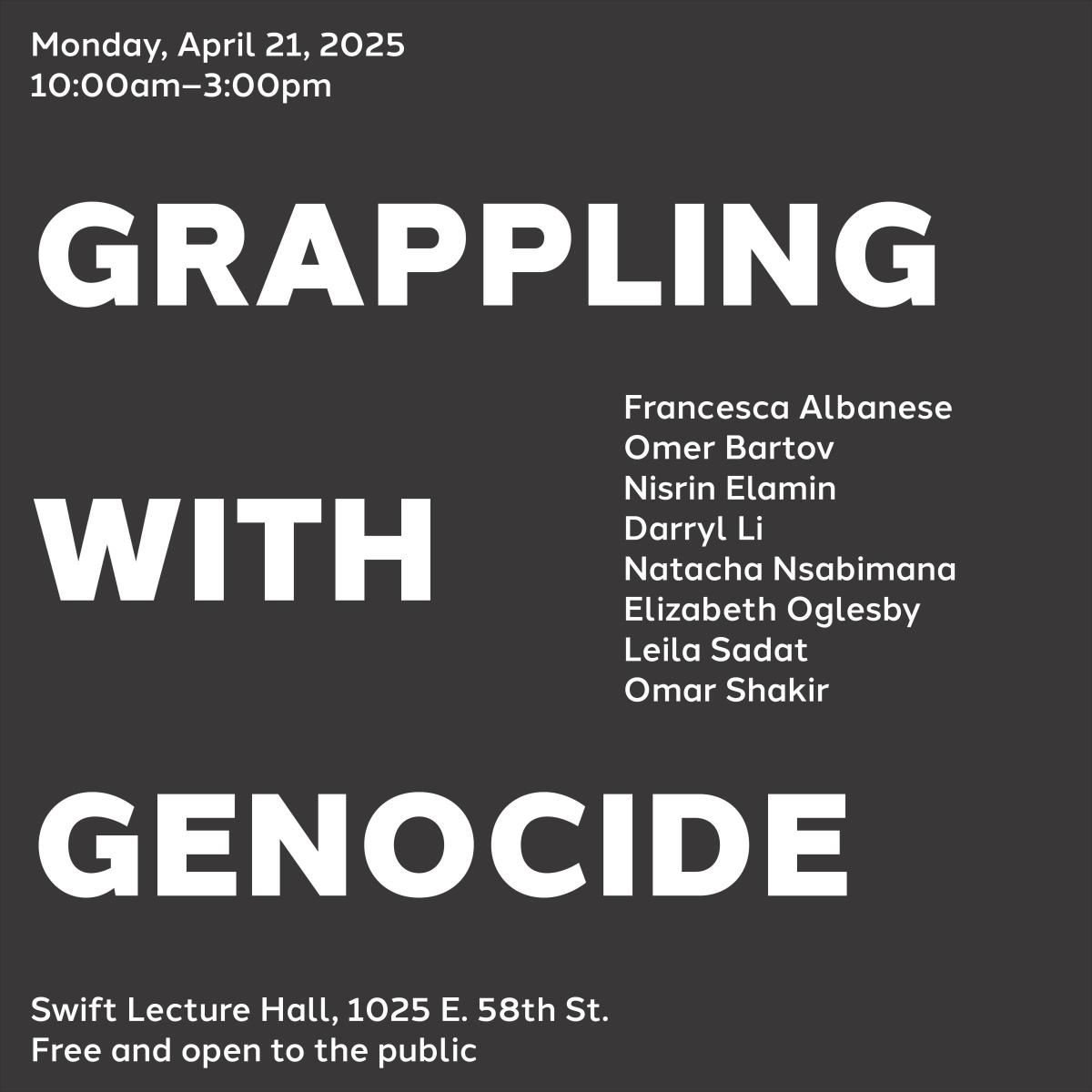
Genocide is the greatest evil named by international law, yet its legal form is notoriously ambiguous and particular instantiations often contested. The charge of genocide has also proven woefully inadequate in stopping its horrors in real time. There is little hope for ending unfolding mass atrocities when the most powerful states refuse to accept that genocide is, in fact, taking place.
This roundtable asks how mass atrocities in the past can shed light on the horrors happening today in Palestine, Sudan, and elsewhere. What are the affordances and limits of genocide as a legal category? What can we expect from international legal regimes, governments, institutions like the university, and movements for global solidarity, in stopping genocide?
In-person attendance is open to University of Chicago students, staff, faculty, and alumni. Registration required. All others must register to watch the conference on Zoom.
SCHEDULE
10 a.m. - 12 p.m.
Panel 1 - Confronting Genocide
Francesca Albanese (UN Special Rapporteur on the Occupied Palestinian Territories - joining virtually)
Leila Sadat (Washington University School of Law)
Omar Shakir (Human Rights Watch)
Moderator: Darryl Li (UChicago)
1 - 3 p.m.
Panel 2 - Genocides in Comparative Perspective
Omer Bartov (Brown University)
Nisrin Elamin (University of Toronto)
Elizabeth Oglesby (University of Arizona)
Moderator: Natacha Nsabimana (UChicago)
If you cannot attend in person, you may watch the conference on Zoom.
Organized by The Center for East European, Russian, and Eurasian Studies, the Center for Latin American Studies, and the Center for Middle Eastern Studies.
With funding support from the Forum for Free Inquiry and Expression.
- The Franke Institute for the Humanities
- Global Studies
- Pozen Family Center for Human Rights
- Chicago Center on Democracy
- Chicago Center for Contemporary Theory
